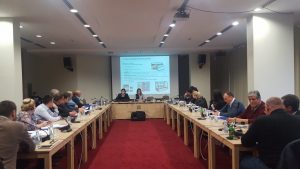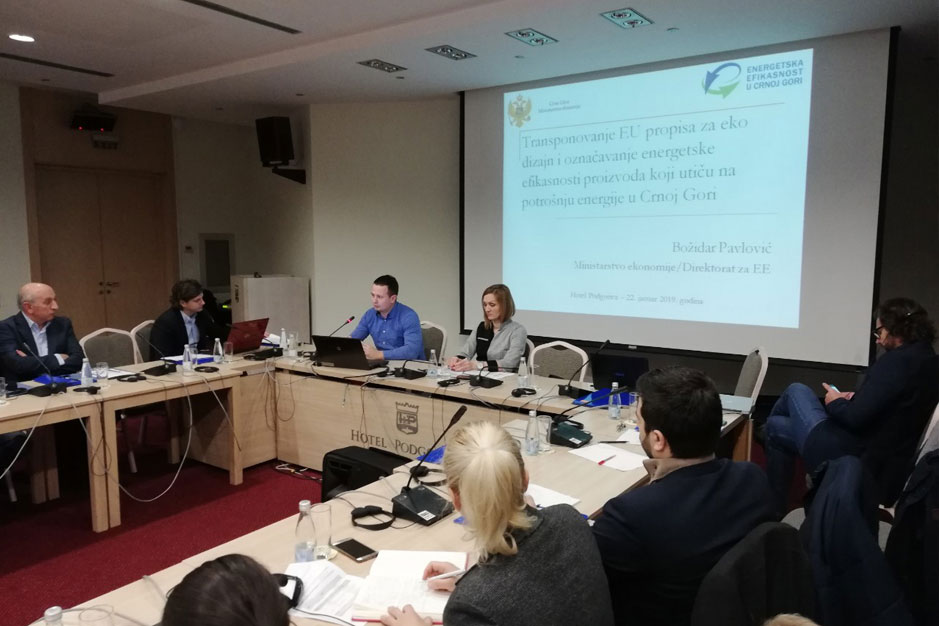The Agency for Nature and Environmental Protection in cooperation with UNIDO has organized the workshop “Kigali amendment to the Montreal Protocol on Substances that Deplete the Ozone Layer”, from 21 to 22 January 2019 which is a part of the activities of the project “Activities on reduction of consumption of HFC substances”.

Objective of the workshop was to present to the participants the Kigali amendment passed by the Parliament of Montenegro, at its session held on 28 December 2018, by adopting the Law on ratification of Amendments to the Montreal Protocol on Substances that Deplete the Ozone Layer.
Participants of the workshop were representatives of the Agency for Nature and Environmental Protection, Ministry of Sustainable Development and Tourism, Ministry of Economy, Institute for Standardization of Montenegro, Administration for Inspection Affairs, Customs Administration, Vocational Education Centre, Chamber of Commerce, and Chamber of Engineers as well as representatives of companies from the sector of air conditioning and cooling.

During the workshop, the participants were informed about the general aspects of the Kigali amendment aimed at reducing the consumption of HFC substances, policies for its implementation, as well as benefits resulting from implementation of different policies. Participants also had an opportunity to get information about available technologies in the process of reducing the consumption of HFC substances, alternative coolants with low GWP potential in different sectors of cooling and air-conditioning, as well as security standards in this field. Special attention was given to activities conducted by the Agency for Nature and Environmental Protection regarding the preparation for implementation of obligations from Kigali amendment, as well as related obligations awaiting Montenegro through the EU accession process and implementation of the so-called F-gas regulation on fluorinated gases.
What’s new is the fact that Kigali amendment does not consider the problem of reducing HFC substances as a separate issue, but it insists also on energy efficiency improvement of technologies used by such coolants. Thus, representatives of the Ministry of Economy/Directorate for Energy Efficiency have presented at the workshop the status of the transposition of EU regulation on eco design and energy labelling of energy related products which also include the technologies in the field of air-conditioning, heating and cooling..
In addition to representatives of Montenegro, UNIDO consultants have also participated in the workshop, as follows. Bernd Kaltenbrunner and Natasa Kocova, as well as Marino Grozdek professor at the Faculty of Mechanical Engineering and Naval Architecture in Zagreb, Croatia, who have, through presentation of experience and examples of best practices, as well as through discussion with participants of the workshop, referred to the activities and actions which will contribute to implementation of regulations in Montenegro and implementation of international commitments that were made.

